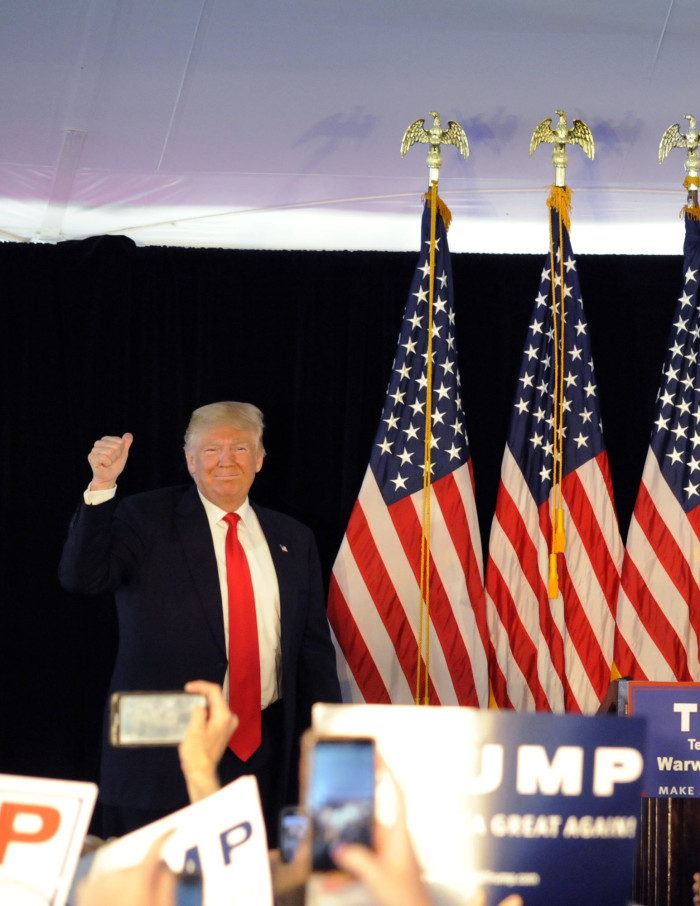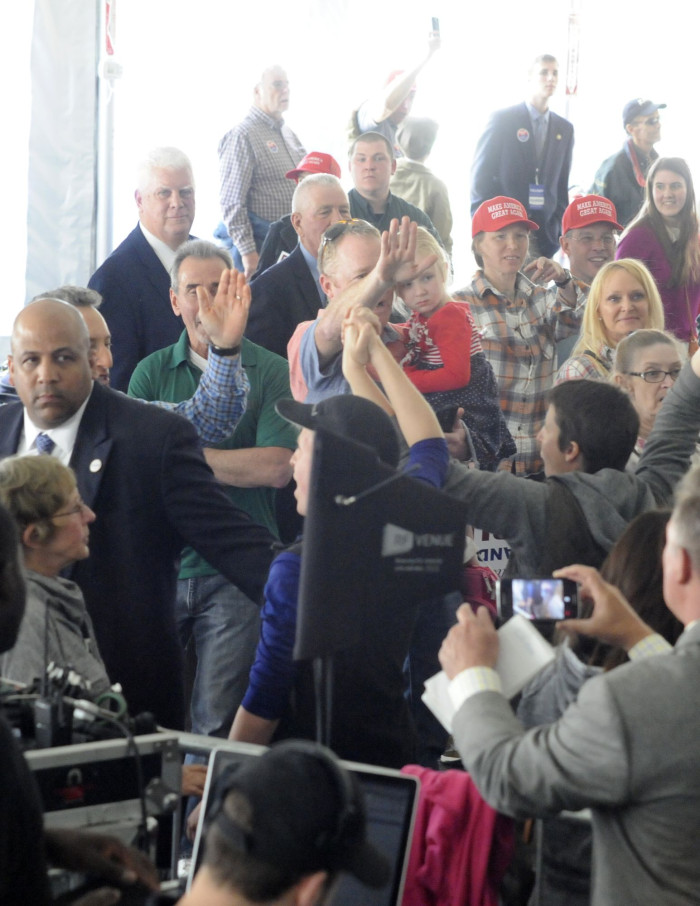Horowitz: Key Republicans Refuse to Board the Trump Bus
Tuesday, May 10, 2016
Donald Trump’s impressive win in Indiana last week, winning a majority of Republican primary voters in a state where demographics favored Ted Cruz, enabled the Reality Television Star and Businessman to lock up the Republican nomination much earlier than most observers, including this one, believed possible.
But Trump’s assumption of the role of presumptive nominee has not been greeted by the usual scramble by primary opponents, elected officials, and party leaders to endorse and sing the fulsome praises of their standard-bearer—the usual craven impulse to be with the winner. In the week since Trump locked-up the nomination, it has become starkly apparent that the divisions in the Republican Party and the strong resistance to Trump among a substantial segment of Republican primary voters as well as elected officials and movement conservatives will not be easily papered-over.
In a nearly unprecedented development, the nation’s most powerful elected Republican, Speaker Paul Ryan(R-WI) announced he was not ready to back Trump. “I’m not there right now. And I hope to, though, and I want to. But I think what is required is that we unify the party, and I think the bulk of the burden on unifying the party will have to come from our presumptive nominee,” said Ryan. During the campaign Ryan had periodically criticized Trump, blasting his proposed ban on Muslims entering the United States, his playing footsie with David Duke, as well as his his generally divisive and uncivil tone. The Speaker is now challenging Trump to demonstrate that he is going to at least soften some of his extreme positions, moderate his tone and make some concessions to Conservatives. This is a tall order and the politically adept Ryan may be providing a test for the Reality Television Star that he knows he is unlikely to pass.
GET THE LATEST BREAKING NEWS HERE -- SIGN UP FOR GOLOCAL FREE DAILY EBLASTTwo of Trump’s former primary opponents, Jeb Bush and Lindsey Graham, announced that they would not back Trump. Bush explained his decision in a Facebook post. The former Florida Governor wrote that the Presidency requires "great fortitude and humility and the temperament and strong character to deal with the unexpected challenges that will inevitably impact our nation in the next four years." Donald Trump has not demonstrated that temperament or strength of character. He has not displayed a respect for the Constitution. And, he is not a consistent conservative. These are all reasons why I cannot support his candidacy."
Former Presidents George W. Bush and George H.W. Bush also indicated that they would take no position on the general election and Mitt Romney, the 2012 Republican nominee, repeated his position that he will not vote for Donald Trump in the fall. Long-time McCain alter-ego Mark Salter took an extra step, saying he will be voting for Hillary Clinton While some Republican elected officials, including McCain himself, Senate Majority Leader Mitch McConnell (R-KY) and former Senator and Republican Presidential nominee, Bob Dole did indicate their support for Trump, their tone was generally tepid—almost reluctant.
Even more potentially damaging to Trump’s ultimate electoral prospects is the continued talk by conservatives of mounting an independent candidacy. Given that time is running out to do the work needed to get on state ballots and the absence so far of an interested candidate, this may end up being just talk. And if you are Donald Trump, you are fervently wishing that is the case.
Trump’s task in unifying the Party is made more difficult by the fact that most Republican elected officials and leaders believe he is likely to lose in the fall and do it so convincingly that it could cost them control of the Senate and even put the House in jeopardy. Larry Sabato's highly regarded Crystal Ball's first Clinton-Trump electoral college map, gives Clinton a 347 to 191 electoral college edge. Trump is the most unpopular nominee of a major political party in the history of polling. As a result he does not have the leverage that is created by people fearing that they are risking making an enemy of the next President.
Trump may be able to get some upside from this opposition by framing it as the party insiders versus the people. But given that he already faces an uphill fight in the general election he would be well-advised to go against his instincts to go on the attack—to listen and to proceed cautiously. In a situation where he needs to expand his support well-beyond his existing base to make himself electorally competitive, job one is to at least limit Republican defections.
This past week should demonstrate to Mr. Trump that this is a tall order—one that will require a different skill set than the one he used to win the nomination.
Rob Horowitz is a strategic and communications consultant who provides general consulting, public relations, direct mail services and polling for national and state issue organizations, various non-profits and elected officials and candidates. He is an Adjunct Professor of Political Science at the University of Rhode Island.
Related Slideshow: Trump Rally in Warwick Rhode Island, April, 2016
Photography by Richard McCaffrey
Related Articles
- Horowitz: Progress on the Climate in Paris
- Horowitz: Obama’s Sunday Night Speech; A Good Beginning
- Horowitz: Raimondo is Putting Rhode Island on the Right Economic Path
- Horowitz: New Hampshire Primary Preview
- Horowitz: Reagan Democrats are Dead or Republicans
- Horowitz: American Workers Taking Steps to Upgrade Skills
- Horowitz: Harsh Anti-Immigrant Campaign Rhetoric Not Swaying Most Americans
- Horowitz: President Obama and Stephen Curry Recruit Mentors
- Horowitz: Rhode Island’s Presidential Primary Today Counts
- Horowitz: Obama Visit Puts Exclamation Point on New Era for US-Cuba Relations
- Horowitz: Trump’s Failure to Accept Any Responsibility Disqualifies Him
- Horowitz: John Kerry - A Consequential Secretary of State
- Horowitz: President Bloomberg; Stranger Things Have Happened
- Horowitz: Speaker Ryan is Off to a Great Start
- Horowitz: Paris Climate Agreement Puts the World on the Right Path
- Horowitz: Paris Shakes Up Presidential Race
- Horowitz: One Ugly Week on the Home-Front
- Horowitz: Scalia’s Death Ripples Through Presidential Race
- Horowitz: Jeb Bush - A Class Act Leaves the Race
- Horowitz: Trump’s Refusal to Criticize Duke & KKK Part of a Disturbing Pattern
- Horowitz: Romney’s Trump Take-Down is Having an Impact
- Horowitz: National Park System Turns 100
- Horowitz: Obama Moving on Gun Safety the Only Way He Can
- Horowitz: 5 Reasons for New Year’s Optimism
- Horowitz: A Welcome Discussion - Republican Presidential Candidates Poverty Forum















































